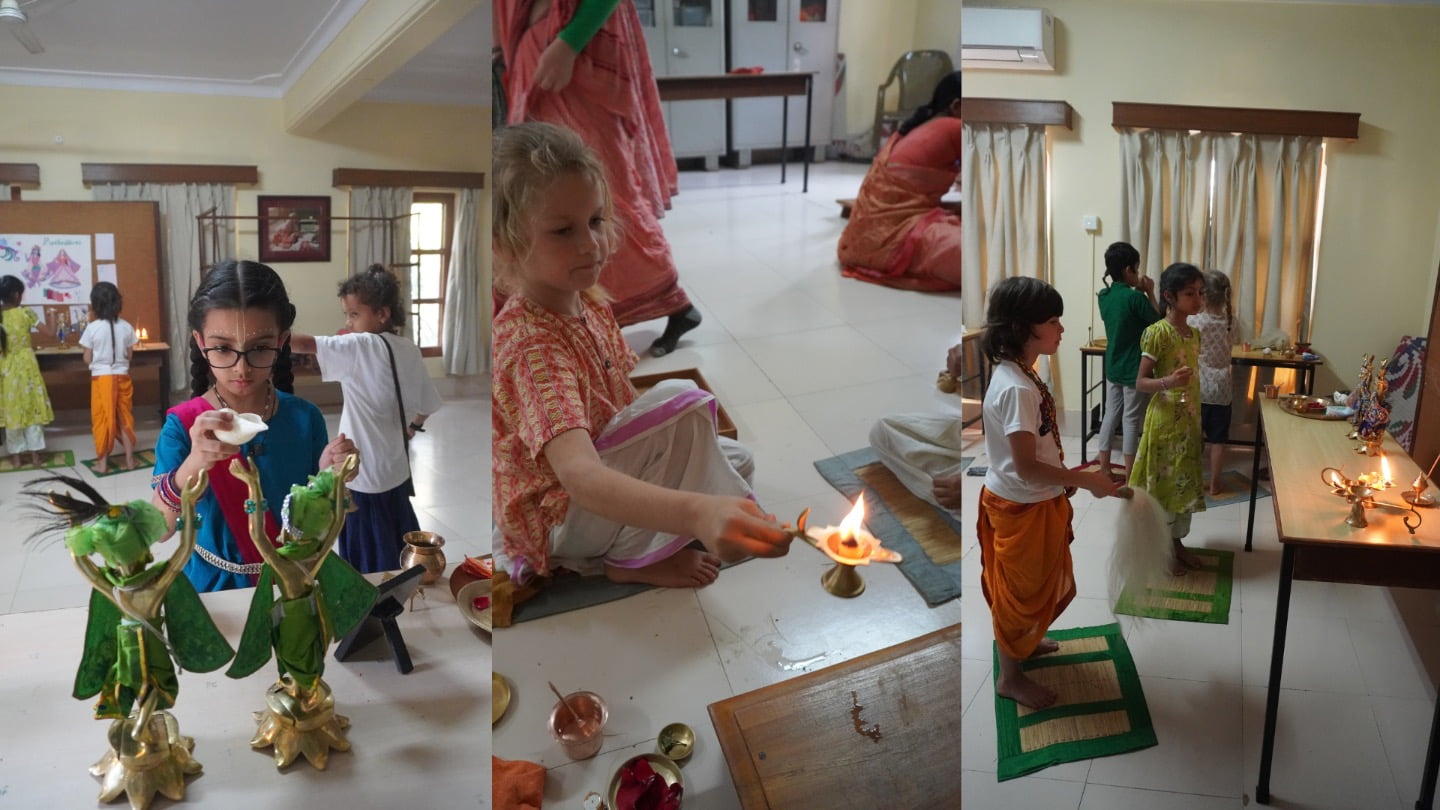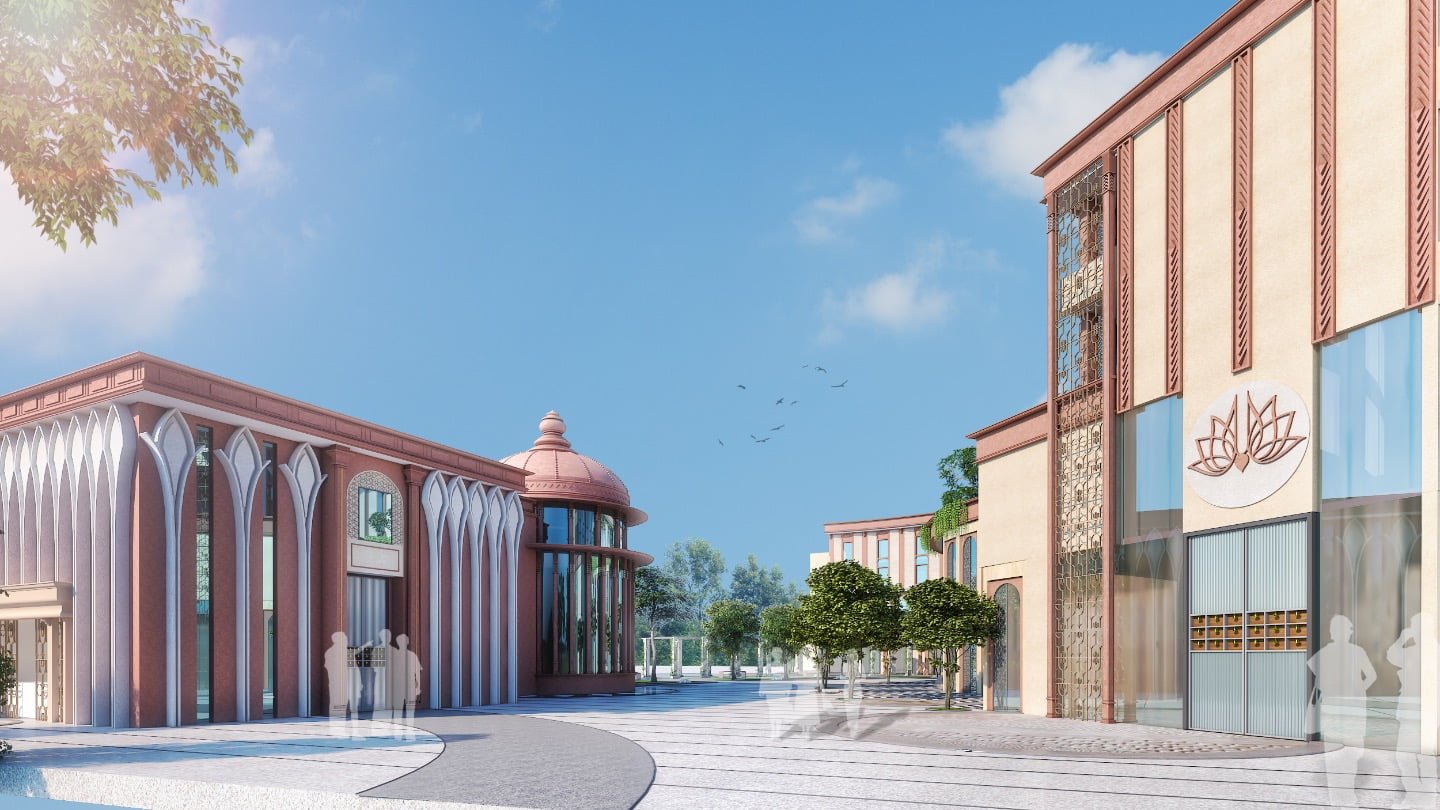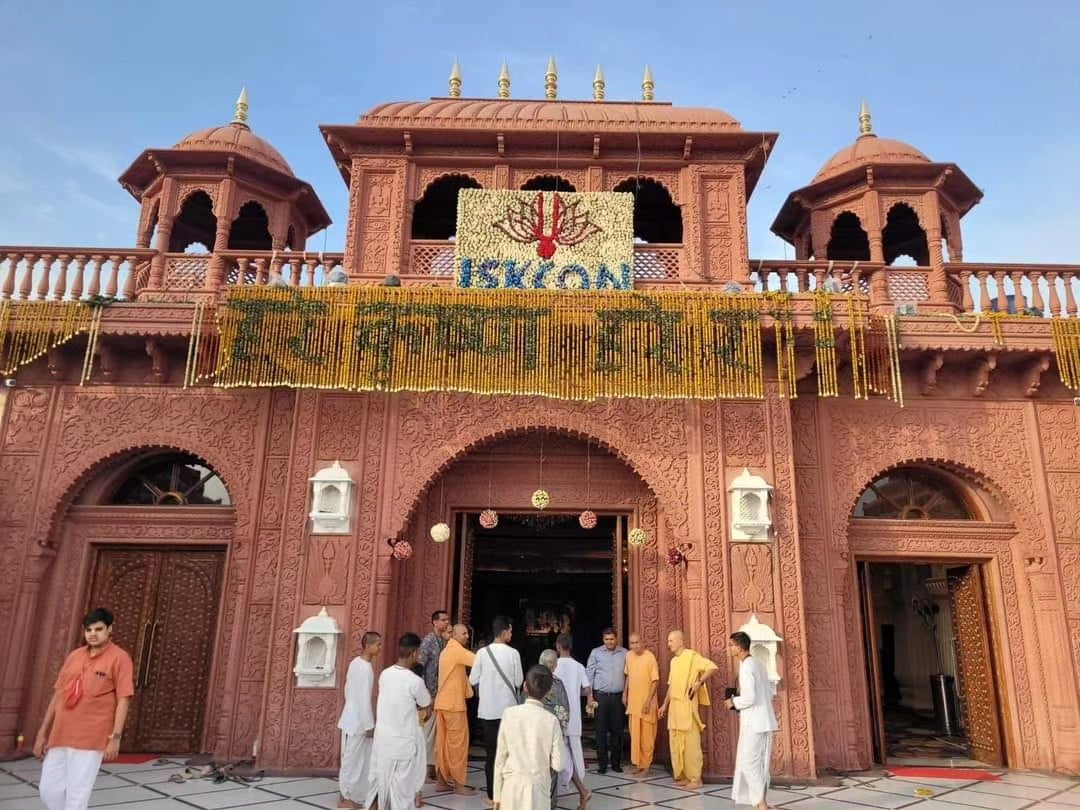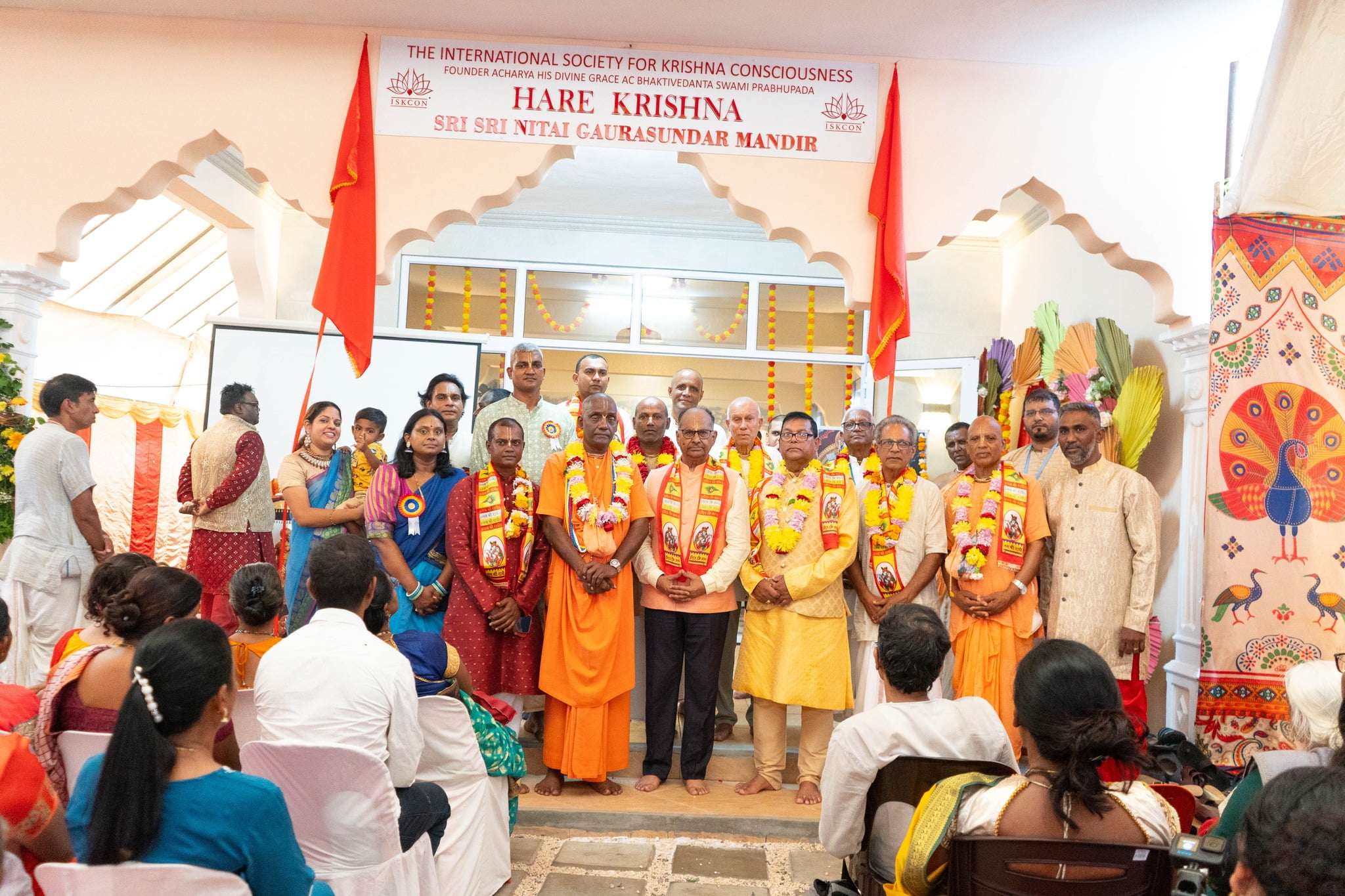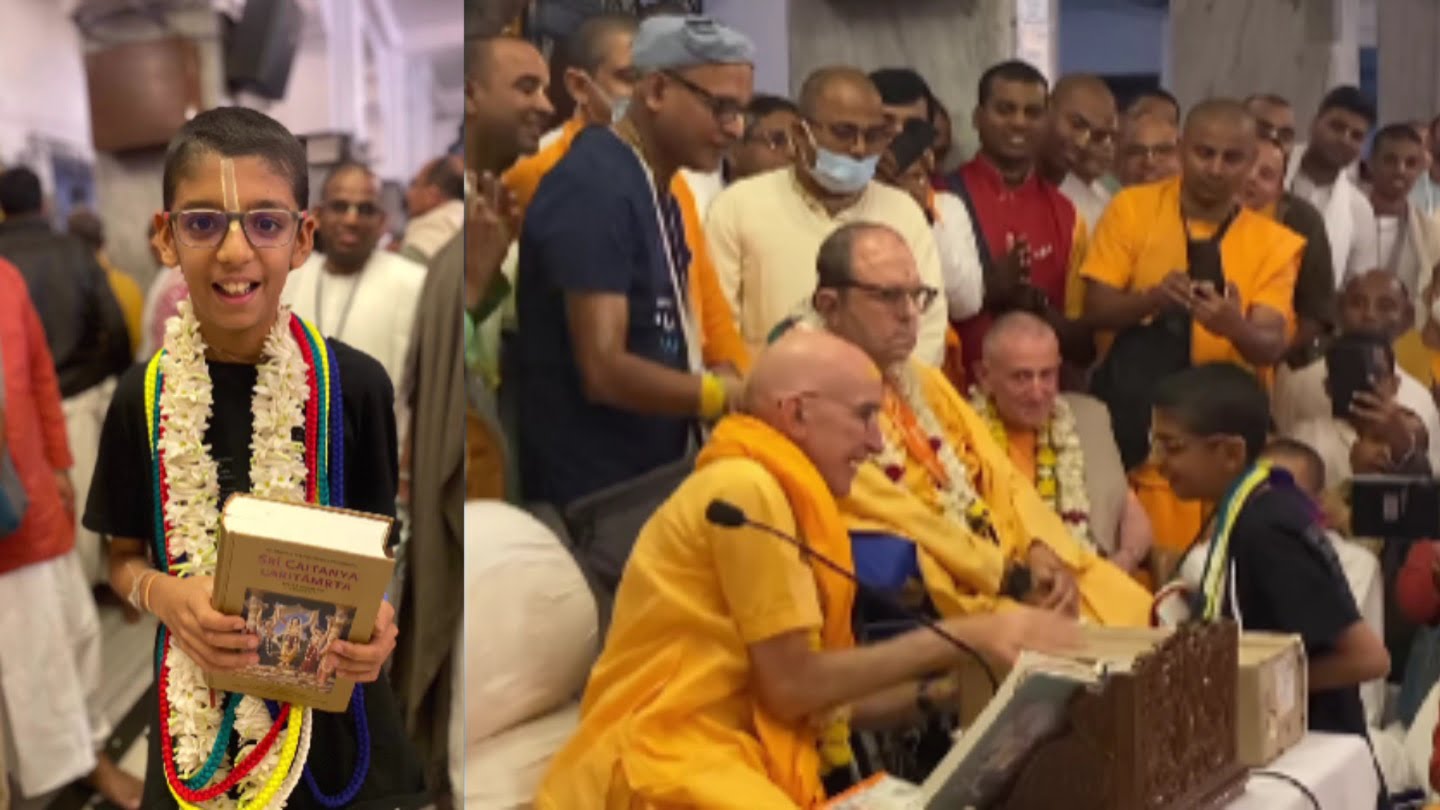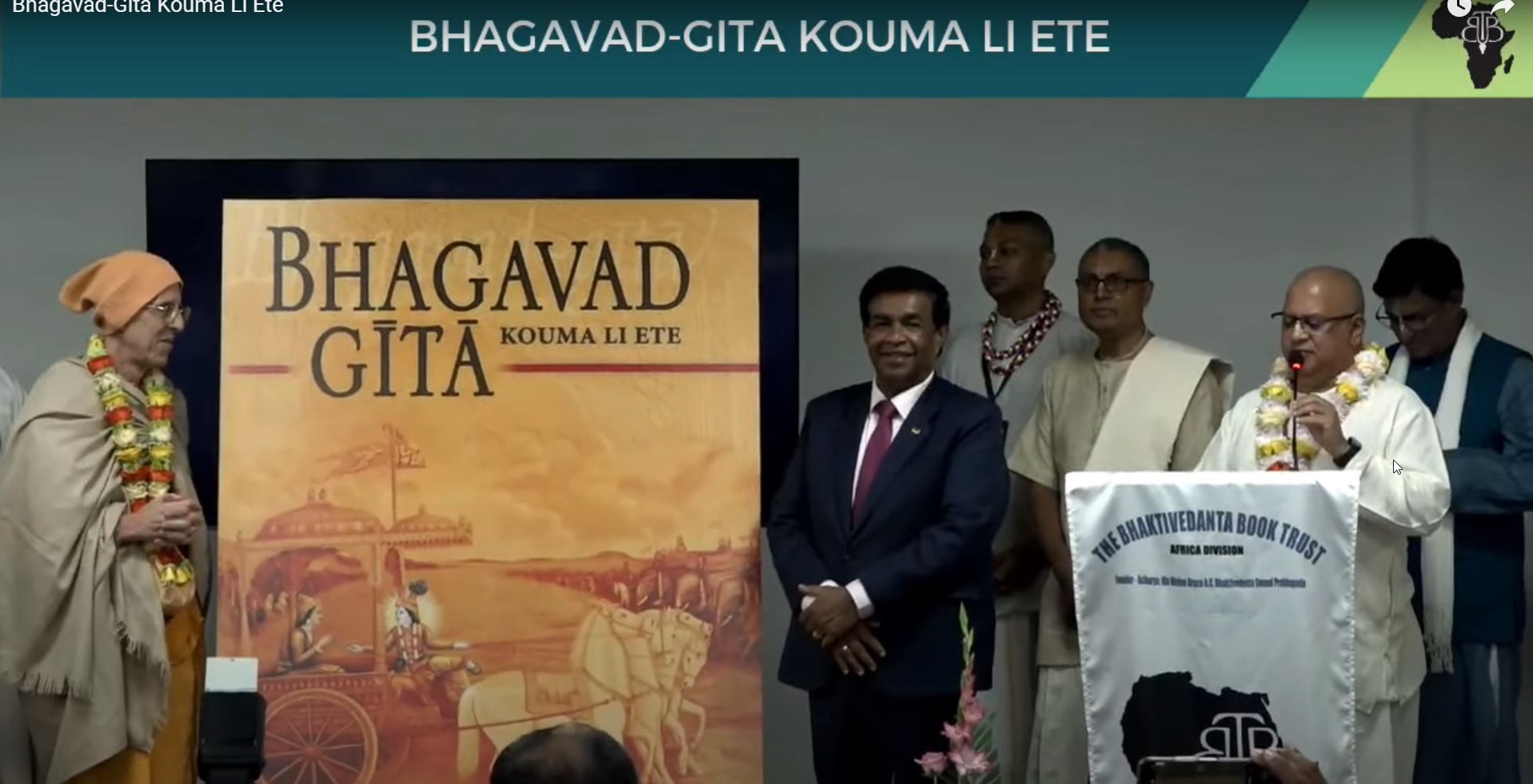ISKCON’s Astottara-sata Dasa Wins TED Fellowship
By Antony Brennan | Jun 06, 2009

Astottara-sata Dasa (Alexander Petroff) is an American second generation devotee of Krishna who spent his childhood at the rural ISKCON farm community, Gita-nagari nestled in the beautiful countryside of Port Royal, Pennsylvania, USA.
These days Astottara-sata, son of Hare Krsna Dasi, spends a lot of his time in the Democratic Republic of Congo where he is the founder and President of Working Villages International (WVI). Working Villages International is a non-profit organization dedicated to building self-sufficient, environmentally sustainable villages. His efforts have earned him a prestigious Technology, Entertainment, and Design (TED) fellowship. This year he is one of 25 TEDGlobal Fellows chosen from around the world.
The goal of the Technology, Entertainment, and Design (TED) Fellowship program is to bring together innovative and pioneering thinkers and empower them to effectively communicate their work to the world.
"We couldn’t be more thrilled,” Astottara-sata said. "It’s an honor to be part of something like TED. It goes to show that there’s a network of people around the world working to share ideas and innovations, and it’s exhilarating."
The Technology, Entertainment, and Design conference was founded by Richard Saul Wurman and Harry Marks in 1984 to bring together people from these three fields. Since then, its scope has broadened to include some of the world’s most fascinating thinkers and doers from science, business, the arts, and those confronting the global issues facing our world. Conference talks have been made available online on the TED website (www.ted.com) which recently won the coveted award for Best Use of Video or Moving Image at the 13th Annual Webby Awards.
Astottara-sata will be one of 25 featured fellows at the TEDGlobal Conference, held at Oxford, UK in July this year.
Since its inception in 2005, Astottara-sata’s Working Villages International (WVI) village model has flourished. Its village in the Ruzizi Valley region of the Democratic Republic of Congo grows over 100,000 pounds of rice each month and more than 90 varieties of organic crops, making the project one of the largest food producers in the region.
Working Villages International is dedicated to building self-sufficient, environmentally sustainable villages all over the world. The village model is founded on the principles of local production for local consumption and meaningful employment. The organization addresses the root causes of hunger, unemployment and violence using a development model that can be adjusted to almost any region in the world. The model combines sound economic theory with the social values taught by ISKCON’s founder Srila Prabhupada, to create a sustainable model of Varnasrama development for the 21st century.
Astottara-sata believes that by abandoning the quest for quick wealth through export-driven development, and instead focusing on production for local needs first, trading only in surpluses, that the quality of life for the world’s rural populations will actually increase.
To prove his model he established an experimental village in South Kivu province, in the far eastern part of the Democratic Republic of Congo, growing large amounts of food, building houses and providing employment to over 600 Congolese.
The secret to the project’s success is self-reliance. Instead of treating farm production as a cash crop to sell off on the market, villages derive more value by eating what they grow. The benefit is not just economical. Workers have found that their diets vastly improve since joining the project. They enjoy over ninety different varieties of crops, all of which are grown organically and are therefore especially high in nutrition.
Working Villages International also helps villagers employed with them by training them in advanced techniques of sustainable agriculture. Within eight years, they hope, most will use their training to develop farms of their own, bringing a lasting improvement and a solid economic base to the whole valley.
“Ever since I can remember, I have always been driven by a desire to build new communities with a different economic basis, where all people could enjoy a decent and just style of living,” Astottara-sata says. “This has been my driving passion from before I attended grade school to today, and there is nothing in my life that I care more about.”
“I was born in the US State of Maine,” He says. “However, I spent my early childhood in a Hare Krishna community in central Pennsylvania. I did not learn to read until the age of 14, so much of my thinking was based on what my mother read to me. Being interested in alternative development, she focused on Srila Prabhupada, Gandhi and Schumacher. Their visions of just societies shaped my early thinking. “
“So many people believe in their visions of society,” says Astottara-sata, “but virtually no models based on their philosophy exist. I found the reason was economics. I started reading books on economics, and when I went to university I chose Hampshire College where I could focus exclusively on the subject.” Astottara-sata founded Working Villages International while attending classes there.
Speaking about WVI, a leading African economist, Professor George B.N. Ayittey, remarked, “This is the first workable and viable grass-roots development that I have seen in the past three decades that can lift millions of Africans out of poverty if replicated across the continent. It does not rely on foreign aid; nor does it rely on governments. Had we implemented a model such as this at independence in the 1960s, the destiny of Africa would have been much brighter than the current fare of gratuitous mayhem, wanton carnage, mass starvation and state collapse.”
Working Villages builds self-sufficient green villages, and is currently helping over 4000 villagers in the Democratic Republic of Congo lift themselves out of poverty. TED chose him for his innovative work in sustainable development.
For more information visit: www.workingvillages.org



